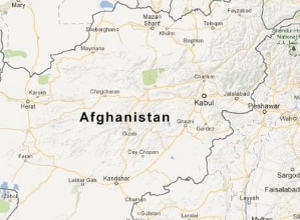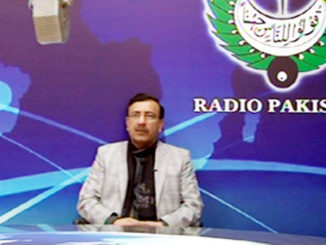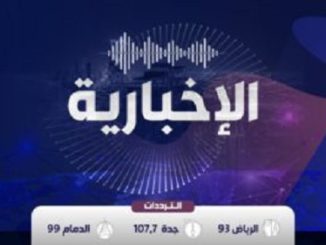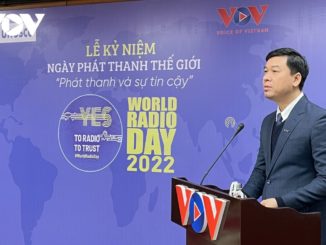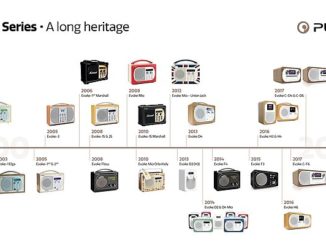Radio Voice of Vietnam (VOV) held a ceremony on February 11 to celebrate the 11th edition of World Radio Day (WRD), under the theme “Radio and Trust“, with the participation of VOV leaders, heads of functional departments, and dozens of local radio and television stations nationwide.As part of his address at the ceremony, Christian Manhart, UNESCO Representative in Vietnam, said that with this year’s WRD theme, UNESCO wishes to affirm the public’s trust in radio as a popular, high-quality, objective, and reliable means of communication. It also aims to promote attention to audiences, especially those who are disadvantaged in society, whilst finally it remains essential to promote the application of digital technology and modern broadcasting methods. This should be done to competently complete the task of information and propaganda with confidence to survive.Whilst VOV has successfully carried out its mission for peace in the past, in the modern era, we believe that VOV will continue to overcome new challenges and successfully complete its mission. In line with this, UNESCO remains ready to accompany VOV in this journey, emphasized Manhart.According to Ngo Minh Hien, Vice President of VOV, for nearly 10 years, the broadcaster has consistently launched a range of activities to celebrate World Radio Day solemnly, with a view to clearly affirming the role of radio in today’s society, especially amid the COVID-19 pandemic impacting all aspects of social life.The celebration therefore creates a forum for colleagues and journalists working as broadcasters of VOV, as well as the national radio industry, provincial radio and television stations to share experiences and promote the development of radio in an era of information explosion.“In the age of information explosion, the most important role of radio is to establish a reliable source of information. That’s also why this year UNESCO has adopted the theme of World Radio Day as ‘Radio and Trust’. Today’s event serves as a forum for broadcasters across the country to share experience, find new directions for radio, and affirm the role of radio as a guide for information in society which is approached by the most people,” affirmed Hien.Building on more than a century of history, radio remains one of the most trusted and widely used forms of media. Throughout the years, radio has provided quick and affordable access to information in real time, in addition to professional coverage about matters of public interest, as well as guaranteed distance education and entertainment. Bridging the gap between “traditional” and state-of-the art technologies, radio now offers a variety of content through different devices and formats, such as podcasts and multimedia websites.“Radio still maintains a strong foothold to connect the community, promote information exchange in the context of many new media methods appearing. At present, media organisations are advocating for strong innovation of new forms of media in order to increase the effectiveness and attractiveness of radio and catch up with the common development trend of world media,” the VOV Vice President added.Tim Rowel, General Manager of Piano in APAC region shared ideas on how international broadcasters generate new funding and increase revenue on subscription platforms.Radioinfo Asia’s Steve Ahern, who is also Head of the ABU Media Academy, shared his ideas on the role and future of radio in the world. He said that while audience consumption patterns show that the number of households with radio sets is decreasing, and youth do not listen to radio sets, but they do listen to radio through mobile apps, streaming and smart speakers, which gives radio an edge over competitors. Radio is still personal, trusted and a source of company. It still stimulates the imagination as it is the only media without a screen. It is anonymous, has a robust transmission infrastructure and is essential in emergencies. He also emphasized that in these days of fake news and disinformation, trust and credibility are essential for audience retention. Brodacasters should make sure that their audience trusts them more than fake social media accounts. […]
